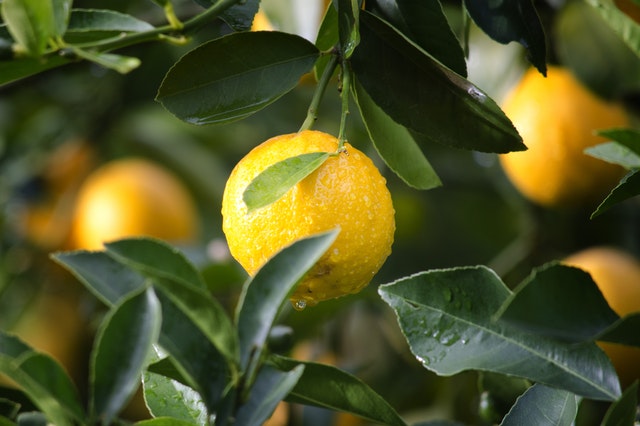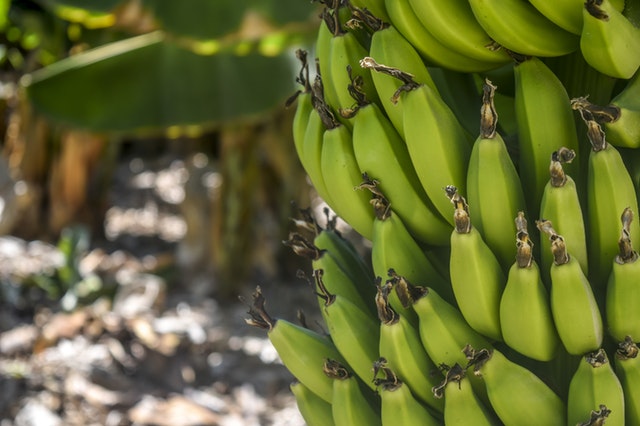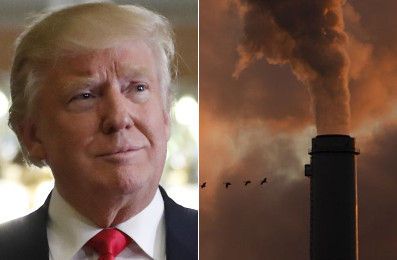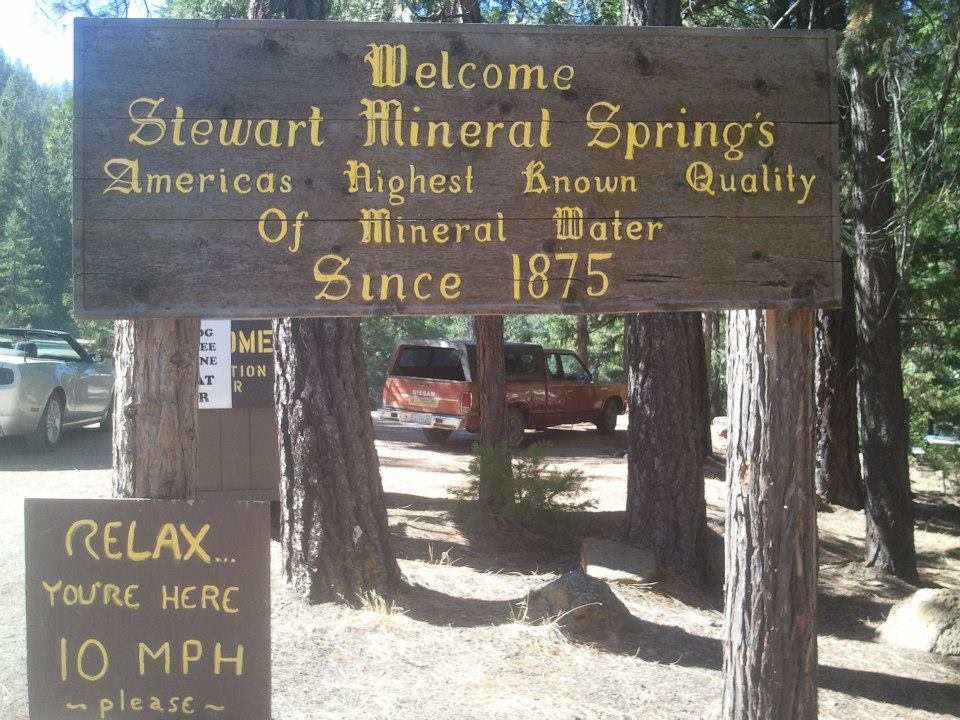WHAT: A federal judge declared that the environmental survey done on the Dakota Access Pipeline was not adequate.
When: June 14
Why does this matter: This is a huge win for pipeline activists, as it proves that the government did not adequately consider the directly negative impacts of an imminent oil spill and how to pipeline itself would disrupt sacred lands. “The judge said the army must redo its environmental analysis in certain sections and he would consider later whether the pipeline must halt operations in the meantime” (Associated Press, 2017). This gives activists time and proper leverage to keep fighting for the environmental justice of the land.
What can you do: “‘Divestment from big banks that have financial stakes is often a difficult, but an important step that can be taken to essentially show where you want your money to go. Taking your money out of banks and putting it into credit unions has been an essential part of the movement to separate banks from offshore drilling. Read more here.' (Malik). Stop using Bank of America, HSBC, UBS, Goldman Sachs, Wells Fargo and JPMorgan Chase” (Helfend, 2017).
WHAT: The National Oceanic and Atmospheric Administration canceled proposed limits on the number of endangered whales, dolphins and sea turtles trapped in sword-fishing nets on the West Coast.
When: June 12
Why does this matter: This is simply immoral. This is one of the first legislations that would target protections for threatened animal species by the Trump Administration. The NOAA claims that the fishing industry has implemented measures to reduce marine injuries and deaths in recent years and that the costs of the protections outweigh the benefits. However, they are only looking at the economic and human side of this perspective. “Endangered fin, humpback, and sperm whales; short-finned pilot whales and common bottlenose dolphins; as well as endangered leatherback sea turtles, loggerhead sea turtles, olive ridley sea turtles and green sea turtles” are all on the list of animals directly affected by the fishing industry and need proper protection in order to survive” (Weikel, 2017).
What can you do: “‘Start with a google search on: “how to choose ethical seafood”. The first three links that show up are: seafoodwatch.org, NRDC.org, and goodfishguide.org. Educating yourself is without a doubt the most important first step anyone can take when it comes to environmental health’ (Malik). Watch what you put in your shopping cart and try to avoid buying unsustainable fish, or opt for none at all” (Helfend, 2017). Here is another great link with Greenpeace. Donate to organizations that work together to protect marine life like MarineBio.
WHAT: Interior Secretary Ryan Zinke suggested shrinking Bears Ears National Monument
When: June 12
Why does this matter: This monument in southeastern Utah is a stunning 1.3-million-acre canyon red rock conservation area that is home to around 100,000 archaeological sites. “The Bears Ears designation was supported by environmentalists and the leaders of many native tribes in the region, including the Navajo Nation, but was opposed by Utah’s governor [and] the state’s congressional delegation,” proving this land also has historical and spiritual significance (Turkewitz and Davenport, 2017). Under The Antiquities Act, which gives presidents the authority to protect designated areas as public monuments, no president has ever eliminated or reduced the size of a monument, so this would be a historic move.
What can you do: Visit and donate to your park system. “Support your community parks and public lands by attending consistently and treating them with respect. Although this may seem counterintuitive for environmental reasons, the more you visit parks and public lands, the more money is poured in. The government cannot avoid seeing this increase in tourism and support” (Helfend, 2017).
WHAT: Hawaii becomes the first state to enact a legislative law that documents rising sea levels and implements parts of the Paris Climate Agreement.
When: June 8
Why does this matter: The state of Hawaii continues to put environmental stewardship as a priority. Tropical islands “are seeing the impacts of climate change first-hand…[as] tides are getting higher, biodiversity is shrinking, coral is bleaching and coastlines are eroding” (Associated Press, 2017). In addition, as climate changes, natural disasters will devastate the islands as time goes on. Hawaii is setting strategies to reduce greenhouse gas emissions, and we must do the same in order to preserve not only the islands, but also the American landscape itself.
What can you do: I think also identifying that climate change needs to be fought with methods beyond just science is important. Through art like photography we can leverage people to understand the ramifications of losing such beautiful lands such as Hawaii. Here is a great article about utilizing art for climate justice.
Here are some great links to read up about other creative solutions to environmental justice issues:
https://www.nytimes.com/2016/06/24/opinion/can-poets-save-the-parks.html?_r=0
https://www.theguardian.com/artanddesign/2017/apr/06/carbon-air-ink-pollution-vehicle-emissions-anirudh-sharma-graviky-labs-london-black-cabs
WHAT: The Department of the Interior is going to review protection of the rare sage grouse.
When: June 8
Why does this matter: Nearly two years ago, the Obama administration helped this rare western bird receive proper collaborative conservation and protection. Both “Republican and Democratic governors expressed support…[as did] many ranchers and environmental groups…[and] while not everyone declared the plan perfect, it went a long way toward easing years of tension over a divisive issue that combined politics, energy development, land use, wildlife conservation and climate change (Yardly, 2017). If the new administration decides to withdraw protection, it would thwart the sage grouses’ potential of security under the Endangered Species Act. The sage grouse is a unique animal that is critically vital to the western US landscape, as protecting these rare birds helps other wildlife that share their habitat, including elk, pronghorn and songbirds.
What can you do: To help protect the sage grouse yourself, remove invasive plants to protect their habitat, mark fences, prevent wildfires, establish conservation easements so private landowners can be reimbursed for permanently protecting land from development and push for no-drill buffer zones to prevent drilling on grouse habitat.
WHAT: Washington, California and New York formed the United States Climate Alliance, an alliance that states will use as a way to coordinate with climate change issues.
When: June 1
Why does this matter: These three states represent a fifth of the US economy and also produced 11 percent of U.S. emissions in 2014, according to the Energy Information Administration. This coalition of leaders are influencing many other states and groups of people to join to take action and pledge to meet the US’ greenhouse gas emission target including 80 mayors “including Los Angeles, Atlanta and Salt Lake City…along with Pittsburgh,” three governors, more than 100 businesses and even “eighty-two presidents and chancellors of universities including Emory & Henry College, Brandeis and Wesleyan are also participating” (Tabuchi and Fountain, 2017). Even Former New York City mayor and billionaire, Michael Bloomberg, pledged $15 million to support operations and foot the US for pulling out of the Paris Climate Agreement. This proves that the majority of the US wants to positively contribute and work together against climate change, no matter what the negative and transgressive agenda of the government has. Liberal or conservative, people are banding together to acknowledge that climate change is real and that this is an important crisis that must be taken seriously.
What can you do: Make sure your local government gets involved. Write letters, make calls, schedule appointments and let your representatives know that this matter is important to you. Start implementing environmental standards in your own town such as implementing recycling or composting bins or reducing plastic bags. Plan town activity days around environmental justice such as trash clean up, no cars for a day, or farmers markets. Get creative! Check out this site to familiarize yourself and get your city involved.
WHAT: Trump announced that the US will withdraw from the Paris Climate Accord
When: June 1
Why does this matter: This move is more than irresponsible, it is frankly embarrassing to the United States, as we would account for 21% of the total emissions reduced by the accord through 2030. Instead, we are prioritizing the hope of false economic precedences over the health of the global environment. Trump claims that the accord stymies economic growth, however, it actually opens doors to the possibility for jobs within the green energy field. Instead we are “weakening efforts to combat global warming and embracing isolationist voices in [the] White House who argued that the agreement was a pernicious threat to the economy and American sovereignty” (Shear, 2017). Frankly, this move shocked the world, eliciting an uproar of opposition from corporate, activist and nation leaders across the world, such as Elon Musk, who in response, quit Trump’s advisory council. In addition, Al Gore stated that this move is a “reckless and indefensible action…as it undermines America’s standing in the world and threatens to damage humanity’s ability to solve the climate crisis in time.” The agreement is nothing more than a positive step forward for the world to battle climate change as one community, instead, Trump is isolating the United States from our allies. He even claims that he wants to renegotiate the terms of the Paris deal, however, Germany, France and Italy have very clearly stated that contours of the agreement cannot be changed and should be taken very seriously for the future vitality of our planet. To make matters more startling, Trump’s decision actually negates what a majority of American’s feel towards the agreement. According to Yale Climate Change Communication, 69% of all voters support the US’ involvement in the Paris Climate Agreement and want Trump to remain within the accord. Ironically, “Trump’s decision to pull out of the Paris climate agreement could accelerate damage to his family’s real estate empire in the coming decades, especially his properties that lie just feet from the encroaching sea in low-lying South Florida,” so you are allowed to have a chuckle of over that feat (Dearen and Sanz, 2017).
What can you do: which will take about four years to complete, leaving a final decision up to American voters in the 2020 election.
WHAT: The Dakota Access pipeline had its first official leak.
When: May 15
Why does this matter: Before officially operational, the pipeline already spilled 84 gallons of crude oil at a South Dakota station. Mass protests from people across the globe, especially from outraged indigenous groups, have been warning about the inevitable leak and threats to the environment. This oil not only costs millions of dollars to clean, it disrupts the stability and integrity of the sacred land. At the end of the four year term, the Obama Administration denied a key permit to the project, however, Trump is directly connected to the company involved and has expedited this hazardous pipeline’s construction. Read more here.
What can you do: “‘Divestment from big banks that have financial stakes is often a difficult, but an important step that can be taken to essentially show where you want your money to go. Taking your money out of banks and putting it into credit unions has been an essential part of the movement to separate banks from offshore drilling. Read more here.' (Malik). Stop using Bank of America, HSBC, UBS, Goldman Sachs, Wells Fargo and JPMorgan Chase” (Helfend, 2017).
WHAT: The EPA allowed mining company, Pebble Limited Partnership, to pursue federal permits to create a massive gold and copper mine at Bristol Bay, the headwaters of one of Alaska’s pristine salmon fisheries.
When: May 12
Why does this matter: With large copper and gold deposits in southwest Alaska, mining companies have been pressuring the government to overturn environmental regulations for years. However, mining will not only pollute the surrounding water and fish populations, it will also adversely affect the health and economy of the indigenous and Alaskan Natives in the region. The Trump administration is giving “a go-ahead to industry to challenge EPA actions or to seek permits about which they previously might have been uncertain” (Bohrer, 2017).
What can you do: Buy and support sustainable brands such as Brilliant Earth for your jewelry needs. Read up more about the sustainable process of bioleaching here.
WHAT: Secretary of State, Rex Tillerson, signed the Fairbanks Declaration, an international declaration that acknowledges the existence and threat of climate change towards the Arctic region.
When: May 11
Why does this matter: This huge step is in direct opposition with the Trump Administration’s trivial and skeptical views of climate change. It indicates the urgent and critical need to globally work together to stop climate justice issues. This declaration was signed at a meeting with the Arctic Council, “a forum made up of indigenous groups and eight countries with territory bordering the Arctic Circle” (Greenwood, 2017).
What can you do: Greenpeace lists some great ways you can get involved with arctic drilling campaign issues.
WHAT: A methane emissions repeal measure failed to pass the Senate.
When: May 10
Why does this matter: The new rule would have given energy corporations amnesty for their pollution from methane emissions on federal land. Keeping the Obama administration’s old rule, which “requires oil and gas companies to plug accidental leaks of methane…and scale back the practice of intentionally venting or burning gas as they extract more profitable crude oil” is vital in keeping oil and gas companies in check with environmental hazards (Dlouhy, 2017). Regulating methane is a very important step towards battling climate change, as the Trump administration has clearly prioritized fossil fuel interests over environmental protection. Fossil fuel production and intensive livestock farming are responsible for 60% of all human methane emissions with landfills and waste contributing 16%, biomass burning contributing 11%, rice agriculture 9%, and biofuels 4%.
What can you do: This is a positive step in methane regulation. Try to decrease your fossil fuel production through public transportation, carpool, biking or walking as much as possible. Also, check out car sharing options. Eat less beef and palm oil, which are huge contributors to deforestation. Forests naturally absorb methane. Decrease your waste production by buying bulk, whole foods and produce and investing in sustainable food storage such as Bees Wrap, Stasher Bag, Mason Jars and reusable water bottles.
WHAT: The EPA dismissed half of its scientific advisers on the major review board.
When: May 7
Why does this matter: An unexpected red flag, this move signals a shift from academic to business and industry minded individuals running the EPA. The EPA provides guidance on whether research has sufficient rigor and integrity. Scott Pruitt is replacing scientists with the very industry critics that are being scrutinized by the EPA for their pollution efforts. This allows them to control all aspects of their carbon footprint, not caring about its effects on human health and the environment. Trump has even called for the EPA to have a “40 percent reduction for its main scientific branch” and rolling “back major Obama-era regulations on climate change and clean water protection” (Davenport, 2017).
What can you do: “Educate yourself with science-based literature or documentaries. Try to be careful when reading on the internet, as much of the information can be slanted to either side. Taking a science course at your local college or online is another great way to get more informed” (Helfend, 2017).
WHAT: The US Department of Agriculture is easing school lunch regulations implemented by the Obama Administration.
When: May 1
Why does this matter: Although not perfect, the 2010 law, implemented by Michelle Obama, required students to be offered “fruits and vegetables every day, have whole grain-rich foods, fat-free or low-fat milk, and have meals with reduced sugars and sodium” (Khan and Ebbs, 2017). Agriculture secretary, Scott Perdue, decided to halt sodium and whole-grain requirements, as well as, allow 1 percent fat flavored milk back into the National School Lunch Program. Many more conservative groups have complained and lobbied about restrictive nutritional lunch programs and the governments need to intervene, however, obesity is a large epidemic in America. With food and agriculture corporations continuously ignoring nutritional health standards, Michelle Obama’s actions were a step in the right direction to introducing children to a whole food, healthy diet.
What can you do: Pack your own lunches for your children. Teach about nutrition and real whole foods directly from the home. What the Health Meal Planners can help with affordable meal planning and kid friendly recipes. Also consider time saving meal box subscriptions such as Urthbox, One Potato or HelloFresh.


















































